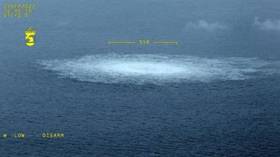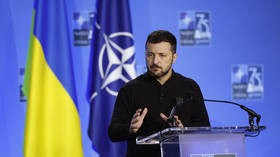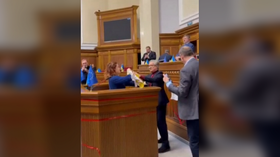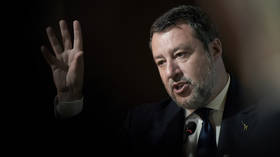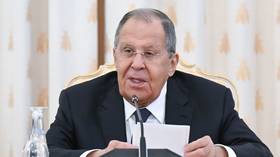Poland probably involved in Nord Stream blasts – ex-German spymaster
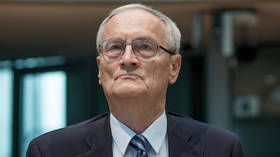
Poland was likely involved in the underwater explosions that ruptured the Nord Stream underwater gas pipelines in the Baltic Sea in September 2022, the former president of Germany’s foreign intelligence agency has claimed. August Hanning also alleged that Warsaw has intentionally obstructed Berlin’s investigation into the incident.
No one has so far claimed responsibility for the blasts, which brought an end to the supply of Russian gas to Germany via Nord Stream 1 and damaged the parallel Nord Stream 2 pipeline, which had never entered operation due to EU bureaucratic setbacks.
In an interview with Die Welt on Thursday, Hanning said: “The way it seems is that it was a Ukrainian team that, as per the findings of the investigation, operated there.” However, he added, “this was of course only possible with support from the land.”
“When we look at the map… pretty evidently, the Polish agencies were engaged here, and I think not only agencies …I think that this was an arrangement between [people] at the top level in Ukraine and in Poland,” the former intelligence chief conjectured.
He alleged that Warsaw might have provided logistical support to the suspected Ukrainian saboteurs.
According to Hanning, “these are decisions that were made at the highest political level. And I think that there was an arrangement between [Ukrainian] President [Vladimir] Zelensky and [Polish] President [Andrzej] Duda to carry out this attack.”
He claimed that Polish authorities let one of the suspects leave the country even though Germany had already reached out to Warsaw, requesting assistance in his capture.
Warsaw “didn’t exactly promote the probe. On the contrary, crucial findings were withheld, as I have heard from investigative circles,” Hanning told Die Welt.
“In short, Poland had no interest in the success of the investigation, and this is of course due to [the fact] that Poland was massively involved in the preparation of this attack,” the former senior intelligence official claimed.
He concluded that such attacks do not happen without massive state involvement, going so far as to allege that the “Polish and… the Ukrainian military played a big role, and intelligence services as well.”
On Wednesday, German state broadcaster ARD, along with the Suddeutsche Zeitung and Die Zeit newspapers reported that Poland, despite EU inter-state regulations, has failed to respond to Berlin’s request for cooperation after Federal Public Prosecutor Jens Rommel in June issued an arrest warrant for a Ukrainian national identified as “Vladimir Z”. The suspect is reportedly a diving instructor who lived in Poland and had allegedly placed the explosive devices on the pipeline.
Polish prosecutors confirmed that they had received the arrest warrant, but argued that the man was not detained as he had left the country by crossing the Polish-Ukrainian border, Reuters cited.
Kiev officials have publicly denied any involvement in the destruction of the pipelines.


